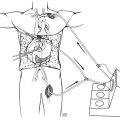In today’s fast-paced world, balancing work and wellness is increasingly challenging, especially for busy women who juggle multiple roles. Managing health amidst demanding schedules requires not just commitment but smart strategies that fit into your lifestyle. This article explores practical tips for busy women to maintain health without compromising their professional responsibilities. From quick fitness hacks and nutritious meal planning to mental well-being and effective time management, we’ve got you covered. Embrace these steps to not just survive but thrive in your dual roles of career and self-care.
1. Setting Realistic Health Goals
Start with setting achievable health goals that motivate rather than overwhelm you. Whether it’s running a 5K, meditating for 10 minutes each day, or simply drinking more water, clear objectives can guide your daily actions. Remember, small, consistent steps often lead to big changes. Use tools like a planner or health app to track your progress and adjust your goals as you evolve. By aligning your health ambitions with your current lifestyle, you’ll be more likely to maintain them alongside your professional duties.
2. Efficient Meal Planning and Prep
For busy women, meal prep is a game-changer. Spending a few hours during the weekend preparing meals can save you a tremendous amount of time and stress during the workweek. Incorporate healthy, easy-to-prepare recipes that boost energy and focus. For those interested in natural and healthy eating options, Melaleuca company products offer a range of choices that cater to health-conscious individuals looking to streamline their diet without compromising on nutrition. This simple adjustment to how you manage meals can significantly impact your health and time management positively.
3. Incorporating Micro Workouts into Your Day
You don’t need an hour at the gym to get your daily dose of exercise. Micro workouts, which can last anywhere from five to fifteen minutes, can be interspersed throughout your day and performed almost anywhere. Whether it’s a quick set of squats during your coffee break or a brisk walk during your lunch hour, these short bursts of activity add up to substantial health benefits over time. They not only enhance your physical fitness but also boost your mood and energy levels, making you more productive.
4. Prioritizing Mental Health
Mental health is crucial to overall well-being yet often neglected in the hustle of daily responsibilities. Prioritize practices that promote mental clarity and emotional stability, such as mindfulness exercises, journaling, or yoga. Even brief periods of meditation can reduce stress and improve your decision-making and creativity. Establish boundaries between work and personal time to prevent burnout and ensure that you dedicate time to relax and rejuvenate your mind.
5. Mastering the Art of Delegation
Delegation is not just a workplace skill but a vital wellness strategy. By entrusting tasks to others, you can free up time for health-promoting activities such as exercise, cooking, or simply resting. Identify tasks at work and home that can be delegated and take steps to hand these over effectively. This approach not only helps manage your workload but also empowers others by giving them responsibilities, creating a supportive environment conducive to everyone’s growth.
6. Smart Scheduling and Time Management
Efficient time management is essential for balancing work and wellness. Utilize scheduling tools to block out time for exercise, meal prep, and relaxation just as you would for meetings or deadlines. Be proactive about identifying times in your day where you can fit wellness activities, even if it’s just for a short period. This methodical approach ensures that both your health and your work receive the attention they deserve, preventing one from overshadowing the other.
7. The Power of Saying No
Learning to say no is a crucial skill for maintaining your health and sanity. Overcommitting can lead to stress, fatigue, and burnout, undermining both your professional effectiveness and your physical health. Be selective about the commitments you take on and don’t feel guilty about saying no to requests that don’t align with your priorities. This will help you maintain a healthier balance and allow you to focus on what’s truly important.
8. Regular Health Check-Ups
Regular health screenings are vital for catching potential health issues before they become serious. Schedule these appointments as you would any critical meeting—non-negotiable. Staying on top of your health through regular check-ups can prevent diseases and ensure that you remain at your best health-wise, enabling you to perform optimally both at work and at home.
9. Creating a Supportive Network
Build a network of friends, family, and colleagues who support your goals of maintaining a healthy work-life balance. This network can provide encouragement, share strategies, and even help you stay accountable to your health goals. Having a support system is not only beneficial for motivation but also for mental health, as it provides a safety net during stressful times.
10. Embracing Technology for Health
Leverage technology to enhance your health management. There are numerous apps and devices designed to track fitness, diet, sleep, and even mental health. These tools can provide insights into your health and help you make informed decisions about necessary changes to your lifestyle. Use technology to streamline your health routines and integrate them more seamlessly into your daily life.
Conclusion
Balancing work and wellness demands intention, strategy, and a bit of creativity, especially for busy women. By setting clear health goals, planning meals, integrating short workouts into your schedule, prioritizing mental health, and learning the art of delegation, you can create a sustainable lifestyle that fosters both professional success and personal well-being. Regular check-ups, smart scheduling, saying no, having a supportive network, and using technology are additional strategies that can further enhance your ability to maintain this balance. Embrace these practices not as chores but as stepping stones to a more fulfilling, healthy life where work and wellness coexist harmoniously. Remember, the journey to balance is continuous, and every small step counts towards a healthier, happier you.




